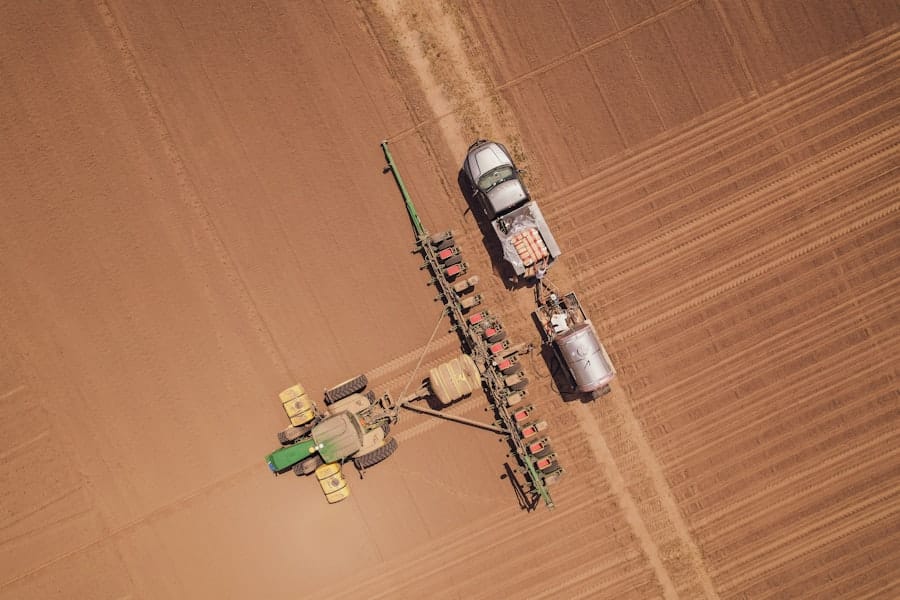Decentralized Finance (DeFi) aggregators are platforms that consolidate various DeFi services and protocols into a single interface, allowing users to access multiple financial products without the need to navigate through numerous individual platforms. These aggregators serve as intermediaries, streamlining the user experience by providing a comprehensive overview of available options for lending, borrowing, trading, and yield farming. By leveraging smart contracts and blockchain technology, DeFi aggregators facilitate seamless transactions and interactions across different decentralized applications (dApps), enabling users to optimize their financial strategies.
The primary function of DeFi aggregators is to enhance liquidity and efficiency in the DeFi ecosystem. They achieve this by pooling resources from various liquidity providers and offering users the best possible rates for their transactions. For instance, when a user wants to swap tokens or provide liquidity, the aggregator will analyze multiple decentralized exchanges (DEXs) to find the most favorable rates, thereby minimizing slippage and maximizing returns.
This capability not only saves time for users but also empowers them to make informed decisions based on real-time data and analytics.
Key Takeaways
- DeFi aggregators are platforms that help users access multiple decentralized finance (DeFi) protocols and yield farming opportunities in one place.
- Using DeFi aggregators for yield farming can provide benefits such as cost efficiency, time savings, and access to a wider range of opportunities.
- DeFi aggregators simplify the yield farming process by offering a user-friendly interface, automated strategies, and optimized gas fees.
- DeFi aggregators play a crucial role in maximizing yield farming returns by leveraging advanced strategies, optimizing asset allocation, and reducing slippage.
- When using DeFi aggregators, it’s important to consider risks such as smart contract vulnerabilities, impermanent loss, and potential security breaches.
The Benefits of Using DeFi Aggregators for Yield Farming
Effortless Yield Comparison
One of the most significant benefits of using DeFi aggregators is the ability to compare yields across different platforms effortlessly. Users can quickly identify which protocols offer the highest returns on their investments, allowing them to allocate their capital more effectively.
Automated Yield Optimization
DeFi aggregators often employ automated strategies that optimize yield farming processes. By utilizing algorithms that continuously monitor market conditions and adjust positions accordingly, these platforms can maximize returns while minimizing risks associated with impermanent loss and market volatility.
Enhanced Profitability and Convenience
For example, some aggregators automatically shift liquidity between different pools based on changing interest rates or token prices, ensuring that users are always earning the best possible yield on their assets. This level of automation not only enhances profitability but also reduces the time and effort required for users to manage their investments actively.
How DeFi Aggregators Simplify the Yield Farming Process

The yield farming process can be complex and time-consuming, especially for those new to the DeFi space. DeFi aggregators simplify this process by providing a user-friendly interface that consolidates various functionalities into one platform. Users can easily navigate through different yield farming options, view historical performance data, and execute transactions with just a few clicks.
This streamlined approach eliminates the need for users to interact with multiple dApps individually, reducing the potential for errors and enhancing overall user experience. Additionally, many DeFi aggregators offer educational resources and tools that help users understand the intricacies of yield farming. These resources may include tutorials, guides, and community forums where users can share experiences and strategies.
By fostering a supportive environment, aggregators empower users to make informed decisions about their investments. Furthermore, some platforms provide simulation tools that allow users to model potential outcomes based on different investment scenarios, helping them gauge risks and rewards before committing their capital.
The Role of DeFi Aggregators in Maximizing Yield Farming Returns
DeFi aggregators are instrumental in maximizing yield farming returns by leveraging advanced algorithms and data analytics.
By aggregating data from various sources, they can provide insights into which protocols are currently offering the best yields and how those yields may change over time.
This real-time analysis enables users to make strategic decisions about where to allocate their assets for optimal returns. Moreover, many DeFi aggregators implement strategies such as auto-compounding, which reinvests earned rewards back into the liquidity pool automatically. This feature allows users to benefit from compound interest without having to manually reinvest their earnings.
For instance, if a user provides liquidity to a pool that generates rewards in the form of tokens, an aggregator can automatically reinvest those tokens into the same or another high-yield pool. This not only accelerates the growth of the user’s investment but also minimizes the impact of gas fees associated with frequent transactions.
Risks and Considerations When Using DeFi Aggregators
While DeFi aggregators offer numerous advantages, they are not without risks and considerations that users must be aware of before engaging in yield farming activities. One significant risk is smart contract vulnerability. Since aggregators rely on complex smart contracts to execute transactions and manage funds, any bugs or exploits within these contracts could lead to significant financial losses.
Users should conduct thorough research on the security audits of the aggregator’s smart contracts and understand the measures taken to mitigate potential vulnerabilities.
The DeFi landscape is characterized by rapid price fluctuations that can impact yield farming returns significantly.
For example, if a user provides liquidity to a pool with volatile assets, they may experience impermanent loss if the price of those assets diverges significantly from their original value. Additionally, changes in protocol incentives or governance decisions can also affect yields unexpectedly. Therefore, it is crucial for users to stay informed about market trends and protocol updates while diversifying their investments across multiple platforms to mitigate risks.
Popular DeFi Aggregators in the Market
Yearn.finance: A Pioneer in Yield Optimization
One notable example is Yearn.finance, which has become synonymous with yield optimization in the DeFi space. Yearn.finance employs a series of vaults that automatically allocate user funds across various lending protocols to maximize returns while minimizing risks associated with impermanent loss. Its unique approach has attracted a large user base and established it as a leader in yield farming.
Harvest Finance: Simplifying Yield Farming
Another popular aggregator is Harvest Finance, which focuses on simplifying yield farming by allowing users to deposit assets into its vaults for automated yield optimization. Harvest Finance offers a diverse range of strategies tailored to different risk appetites, enabling users to choose how aggressively they want to pursue yield farming opportunities.
Emerging Contenders in the Aggregator Space
Additionally, platforms like Beefy Finance and Pickle Finance have emerged as strong contenders in the aggregator space, each offering unique features designed to enhance user experience and maximize returns. These platforms are constantly innovating and improving, providing users with more options to optimize their yields and manage risks in the DeFi space.
How to Choose the Right DeFi Aggregator for Your Yield Farming Needs
Selecting the right DeFi aggregator requires careful consideration of several factors that align with individual investment goals and risk tolerance. First and foremost, users should evaluate the security measures implemented by the aggregator. This includes reviewing audits conducted by reputable firms and understanding how the platform manages smart contract risks.
A transparent approach to security can provide peace of mind when entrusting funds to an aggregator. Another critical factor is the range of supported protocols and assets. Users should look for aggregators that offer access to a diverse array of yield farming opportunities across multiple platforms.
This diversity allows for better risk management through asset allocation and helps users capitalize on varying market conditions. Additionally, examining user reviews and community feedback can provide valuable insights into the platform’s reliability and performance over time.
The Future of DeFi Aggregators and Yield Farming
The future of DeFi aggregators appears promising as they continue to evolve alongside advancements in blockchain technology and decentralized finance. As more users enter the DeFi space seeking yield farming opportunities, aggregators will likely enhance their offerings by integrating new protocols and optimizing existing strategies further. Innovations such as cross-chain compatibility may also emerge, allowing users to access yield farming opportunities across different blockchain networks seamlessly.
Furthermore, as regulatory frameworks around cryptocurrencies become clearer, DeFi aggregators may adapt their services to comply with emerging regulations while maintaining user privacy and decentralization principles. This adaptability will be crucial in fostering trust among users and attracting institutional investors who may be hesitant due to regulatory uncertainties. Overall, as the DeFi ecosystem matures, aggregators will play an increasingly vital role in shaping how individuals engage with decentralized finance and maximize their investment potential through yield farming strategies.
If you are interested in learning about the best software for NDIS providers, check out this comprehensive guide here. This article provides valuable insights into the top trends and tools that can help streamline operations for NDIS providers in 2023. Just like DeFi aggregators are simplifying yield farming, the right software can make a significant difference in optimizing processes and maximizing efficiency in the NDIS sector.
FAQs
What is a DeFi aggregator?
A DeFi aggregator is a platform that combines various decentralized finance (DeFi) protocols and services into a single interface, allowing users to access multiple DeFi opportunities in one place.
What is yield farming in DeFi?
Yield farming, also known as liquidity mining, is the process of using DeFi protocols to earn a return on cryptocurrency holdings. This typically involves providing liquidity to decentralized exchanges or lending platforms in exchange for rewards.
How do DeFi aggregators simplify yield farming?
DeFi aggregators simplify yield farming by providing users with a single interface to access multiple DeFi protocols and opportunities. This streamlines the process of finding and participating in yield farming opportunities, saving users time and effort.
What are the benefits of using a DeFi aggregator for yield farming?
Using a DeFi aggregator for yield farming offers several benefits, including access to a wider range of opportunities, reduced gas fees through optimized transactions, and the ability to easily compare and select the most lucrative yield farming options.
Are there any risks associated with using DeFi aggregators for yield farming?
While DeFi aggregators can simplify the process of yield farming, there are still risks associated with participating in DeFi protocols, such as smart contract vulnerabilities, impermanent loss, and market volatility. Users should conduct thorough research and understand the risks before participating in yield farming through a DeFi aggregator.


